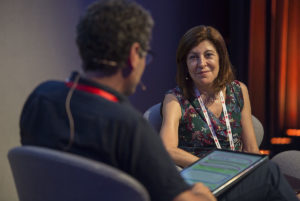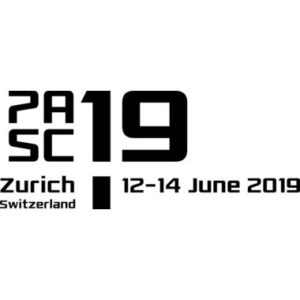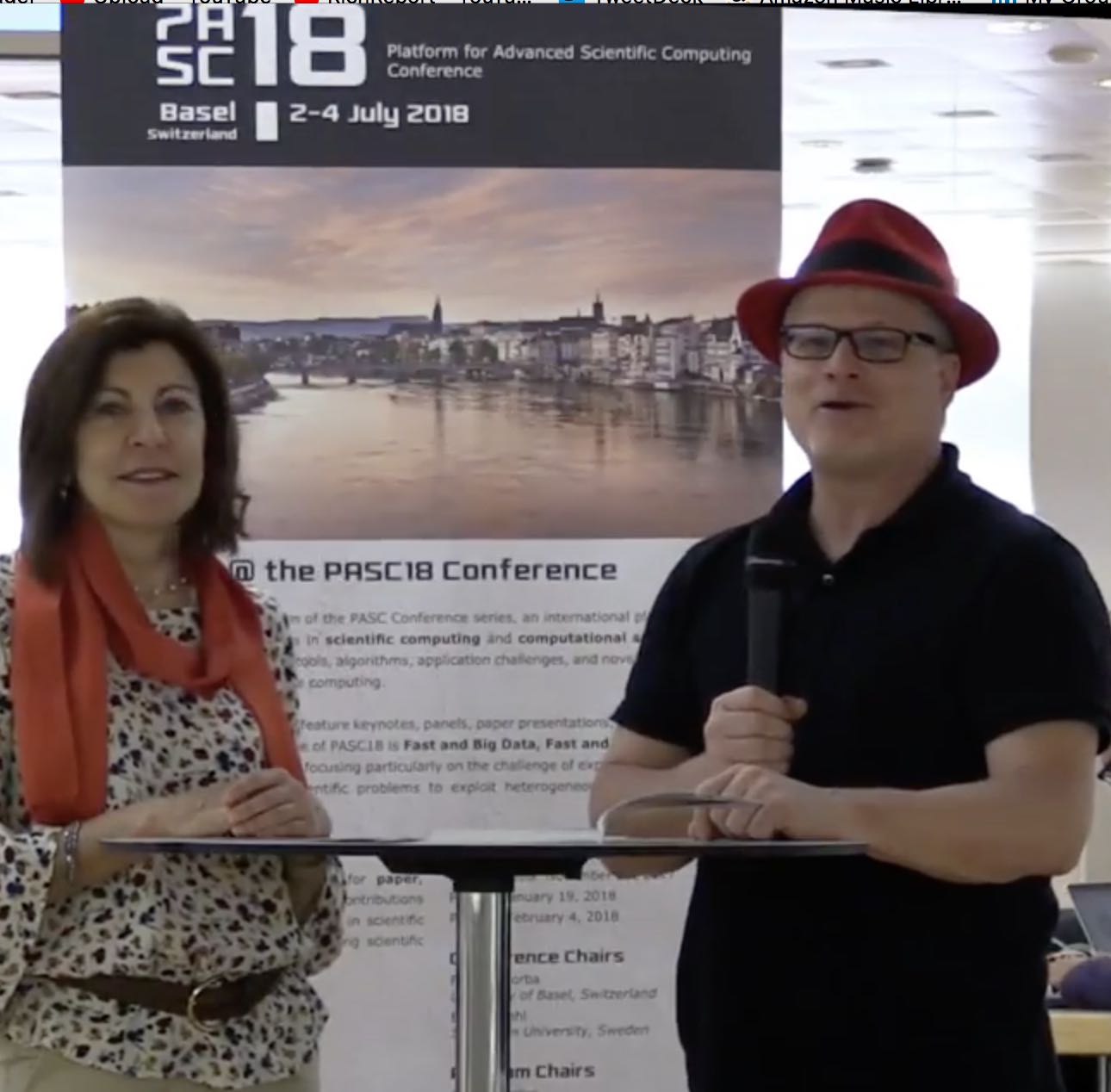
Constantia Alexandrou from the University of Cyprus
In this video from PASC18, Constantia Alexandrou from the University of Cyprus discusses her domain of expertise – quantum chromodynamics.
Many – if not most – fields in physics employ high performance computing, yet quantum chromodynamics (QCD) might be the premiere example of an area very difficult to understand outside of the field.
Chromodynamics helps us understand our universe.
The strong interaction is one of the four forces describing complex phenomena in the evolution of the universe from the quark gluon plasma formed just after the Big Bang at the birth of the cosmos to the formation of neutron stars. The bulk of visible matter in the universe is due to the strong interaction and understanding its properties requires the solution of quantum chromodynamics (QCD), a relativistic quantum gauge theory exhibiting confinement and asymptotic freedom properties that distinguish it from the other known theories. Solving QCD is carried out through large scale simulations using the largest supercomputers such as Piz Daint at the Swiss National Supercomputing Centre and Titan at Oak Ridge National Laboratory.
Constantia Alexandrou is Professor of Physics at the University of Cyprus and Institute Professor at the Cyprus Institute. She holds a BA degree in Physics from Oxford University and a PhD in Theoretical Nuclear Physics from the Massachusetts Institute of Technology. She held research positions in Germany and Switzerland before joining the University of Cyprus. Her field of research is the study of the strong interactions using large-scale simulations of quantum chromodynamics. She is the Director of the Computation-based Science and Technology Research Center of the Cyprus Institute and coordinator of two Marie Sklodowska-Curie European Joint Doctoral programs in Computational Science.
 In this video from PASC18, Petros Koumoutsakos from ETH Zurich interviews Constantia Alexandrou from the University of Cyprus about quantum chromodynamics.
In this video from PASC18, Petros Koumoutsakos from ETH Zurich interviews Constantia Alexandrou from the University of Cyprus about quantum chromodynamics.
See more talks in the PASC18 Video Gallery
PASC19 takes place June 12-14, 2019 in Zurich, Switzerland.




